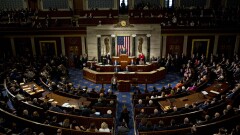Congress has been working on Build Back Better legislation for over a year now. Currently the focus is on negotiations between Senate Majority Leader Chuck Schumer, D-N.Y., and Senator Joe Manchin, D-West Virginia. The package seems to keep getting smaller, and there are some descriptions around about what remains, but no deal has yet been announced.
Since the legislation is intended to be passed through budget reconciliation, action must be taken by Sept. 30, 2022, when the current budget resolution expires. There also remains concern about whether all of the provisions being discussed will be deemed by the Senate parliamentarian to qualify to be included in a budget reconciliation bill, which can pass with only a bare majority.
There remain a lot of uncertainties with passage: In an election year, compromise is often in short supply; it is not clear whether the reduced proposal has the support of Arizona Democrat Senator Kyrsten Sinema; and, with the Fourth of July recess and the August recess, time for negotiations is running out. There is always the possibility of enacting tax legislation in the lame-duck session after the November election, but the chances of that will probably not be known until the outcome of the elections is known.
There are also a number of other tax issues under discussion in Congress. Congress is working on legislation addressing competitiveness with China, with some discussion about including a tax section. Congress is also looking at removing tax breaks for doing business in Russia due to the Ukraine invasion. Several provisions in the Tax Cuts and Jobs Act from 2017 have expired or are scheduled to expire, and there appears to be bipartisan support to extend or make permanent those provisions. Senator Manchin’s top priority is allowing Medicare to negotiate lower drug prices, which would save federal revenue.
Many of the regularly expiring tax provisions expired at the end of 2021, and there is bipartisan support to again extend many of them. There is pressure to enact tax provisions in support of the international tax proposals agreed to by the Organization of Economic Co-operation and Development. There are also continuing efforts to pass a set of tax reforms related to retirement; the legislation has passed the House and the Senate is working on their version.
Congress has a great deal on its plate and is running out of time to accomplish many of its goals, especially in an election year. Still, Democrats realize that this might be their last chance to enact some of the tax provisions that they desire should they lose control of one or both houses of Congress in the fall elections.
There will be a great deal of pressure, therefore, to find the necessary compromises to enact some form of tax legislation and perhaps use that success to improve their chances in the fall elections. There are also a number of tax provisions that could attract bipartisan support that might find a vehicle to pass separately from the reduced Build Back Better bill, which is only likely to pass under budget reconciliation, if at all.











